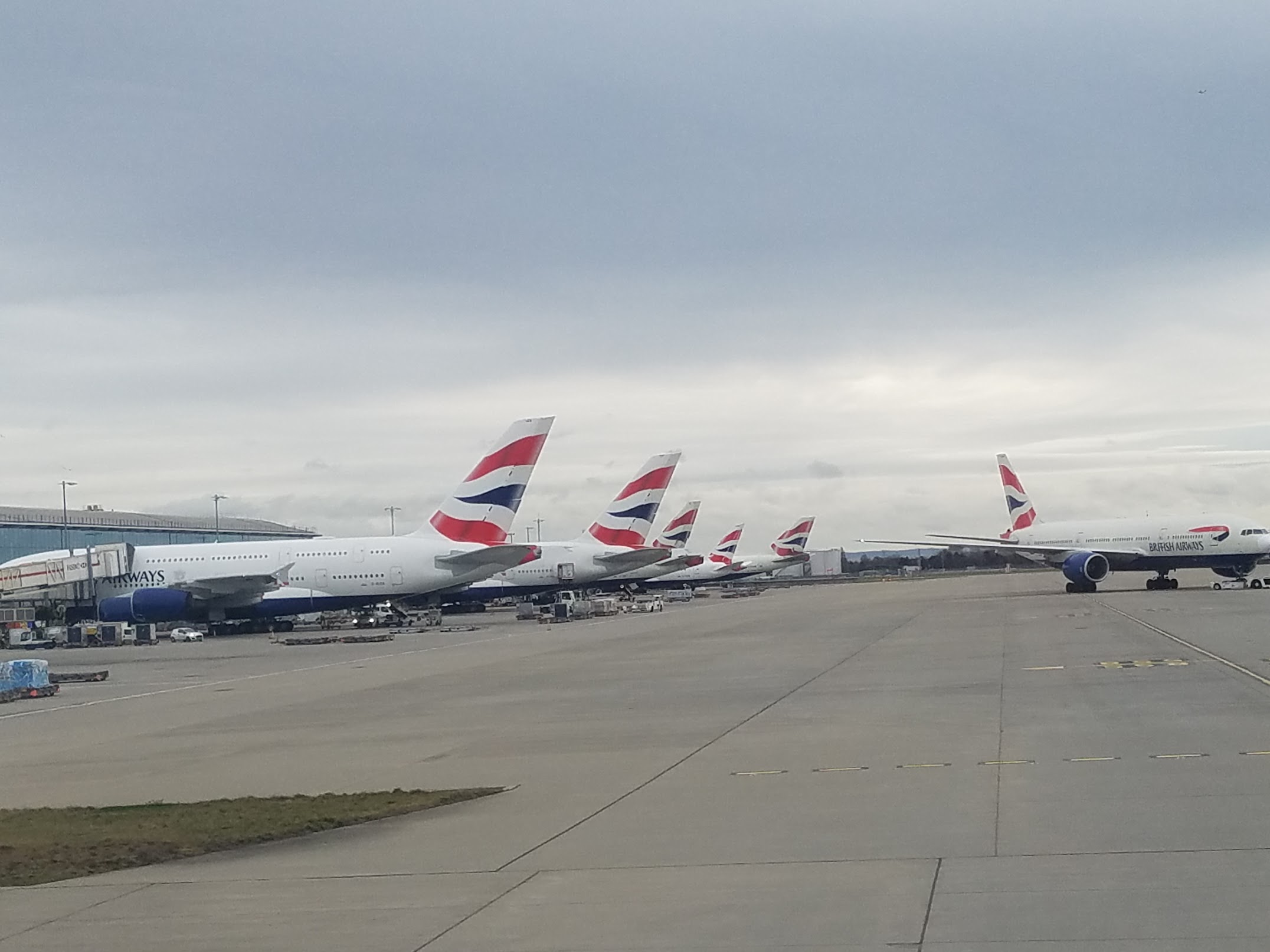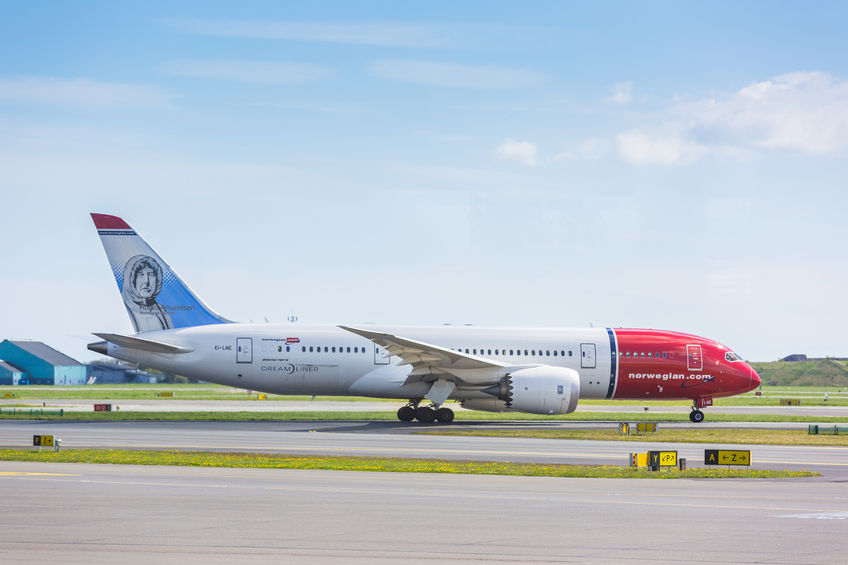News notes from around the interweb:
- Why banning travel has little effect on coronavirus spread. The virus is already here and spreading, keeping people out who have it doesn’t change the rate of spread in any meaningful way. Travel bans might make sense to places where the virus hasn’t yet found its way, but doesn’t help those places where it has.
- China Southern will resume flying to North America starting on Tuesday
- Willie Walsh is delaying his retirement as head of IAG parent of British Airways, Iberia, Aer Lingus and Vueling.

- Marriott quietly launched a new ‘transparent pricing’ checkbox it’s sort of funny that the ability to compare all-in pricing at their hotels is a new option. Online travel agency sites need this desperately, but don’t expect new IT projects at OTAs or competitor hotel chains now.
- Alitalia requiring passengers to wear face masks. They have to bring their own, no mask no fly.

Copyright: jvdwolf / 123RF Stock Photo - Norwegian is cancelling most flights and furloughing most staff as it faces potentially running out of cash.

Copyright william87 / 123RF Stock Photo - Inside the empty Seoul Incheon airport.


That “banning travel has little effect on coronavirus spread” article is completely nonsensical. The virus didn’t get to over 100 countries any other way.
@Rob – the point is that banning travel would have made sense in the containment phase of the virus, before the virus arrived or when it was still traceable to specific cases from abroad, but once it hits community spread it doesn’t help. shutting the barn door, basically.
“There is one main drawback to this model: the effect of travel itself.” Not spending 10 hours in an airplane is a great way to practice social distancing.
I don’t think that much of the US has yet realised that a total shutdown of life as you know it is coming. Bars, restaurants, sports venues, etc – I give it two weeks maximum before you see this.
Even when community spread takes place, the introduction of imported (additional) spread complicates matters and allows for new clusters of spread; and the new clusters of spread within a region can be a problem too.
Focusing on the statistical model for a hot second: the assumptions in such a model are highly flawed. First of all, “[t]ravel is allowed, but only for the Susceptible, Asymptomatic, and Recovered.” However, without good testing and containment measures (i.e. U.S.,) those individuals who are supposed to be isolated or even hospitalized are still traveling. Second, the rou is too low and it doesn’t count for repeated/frequent travels.This rou = 0.002 is a rough measure for international travel only. Third, individual risks are not adjusted properly in the model: super-spreaders (higher reproductive rate,) vulnerable population (i.e. age structure of the country and of its traveling population.) Fourth, the denominators in these models are all wrong when considering travel – it needs to first to understand the risk among the traveling population correctly. For example, it may be hard to exercise social distancing which is one of risks of traveling. This increases the risk for the traveling population. Such risk then spillovers to the general population. I would expect the overall impact of traveling is much higher. Those travel frequently have more exposure and also pose greater risk to others.
For the US to impose a ban on other countries has some logic but benefit is marginal as there is critical mass here already (and as the recent Disney World photos show we Americans still arent taking this virus seriously). Instead, what we will soon find is other countries banning Americans…. HK now mandating Americans do 14 day quarantine; Beijing/Shanghai also imposing 14 day CENTRALIZED quarantine on foreigners including Americans. We can blame China, Italy, etc for the virus origin but the sad fact is we are no longer “cleaner” than anyone else.
I just flew home from Europe. Sitting in a plane of 300+ possible cases, with a mask for 8 hours, and still possibly getting infected was mind numbing. Restricting travel, well we’re beyond that. But making people realize that most types of public travel break social distancing rules. Only do this unless you absolutely have to!
Banning travel won’t matter is completely non-sense. IT is like saying there is a hole in the boat so a few more holes won’t matter. Take Alaska or Hawaii as examples. They each have a single case. That can be contained, however, unrestricted travel would like bring in more vectors.
Gary, if “the point is that banning travel would have made sense in the containment phase of the virus,” what is the reason that the WHO initially recommended against travel bans, when that was during the containment phase? Was the WHO wrong? Do you think that it would have helped if all of Europe (not just Italy) followed the US’s practice of banning all flights to China? Or do you think that even at this time, it would not have been helpful?
Wow…I cannot believe that banning travel doesn’t make any sense. Completely idiotic response. Is this for your own selfish interest so that you can fly? So many more people would die if travel is not limited/banned. Many more people would be put at risk not only for those who travel but for those who work at airports and their relatives and so forth. Unbelieveable….
So, bringing a lot of people to the US from Italy, etc. would have little effect.? Having more people sit in a confined area a foot from others would have little effect? Not seeing that’s ridiculous borders on reckless. Lots of actions would have been better taken earlier, but that doesn’t mean take no action now.
By your promoting or defending this article I really have to question your judgement and motives. I’ll just move on to other bloggers that seem to make more sense.
Good-bye,
@ChrisBCN
Lockdown is already on for seven SF bay area counties.
Umm banning travel does work for a number of reasons. It doesn’t necessarily prevent the spread but what do tourists do? They wander all over the place and often crowd into attractions, restaurants, clubs etc. Their much likelier to interact with people and spread the virus than someone who has a home. In addition, traveling at this time is incredibly selfish. If you go to a place where there is an outbreak and get sick you may end up taking a much needed hospital bed? I don’t want tourists in my city getting sick and taking up beds that my family and friends might need. You would think a travel ban wouldn’t be necessary. That people would simply get the idea that now is not the time to go on holiday. Unfortunately, people have demonstrated time and time again that they are idiots with statements like that they are young and healthy so there is no risk etc etc.
@ChrisBCN Umm NY, NJ and CT have already shutdown those things in addition to many more places. Maybe middle america doesn’t get it yet I dunno but large parts of the population are already under those conditions.
However banning travel based on one’s passport makes sense, right?
@guflyer the WHO itself says that “Extensive restriction of international air travel might delay introduction of a pandemic into a country by up to 2 months and delay pandemic spread by 3–4 months” https://www9.who.int/bulletin/volumes/92/12/14-135590/en/
The WHO recommendation you refer to is geared towards African countries with Ebola, who think they’re done once they close their (land) borders and therefore don’t do anything more. In those circumstances things get worse as the border closure cuts off essential travel (not tourism, of which there is none) which for economic resumes unmonitored outside of official borders (no fever checks), and the virus spreads within the target country due to the lack of surveillance (“I’ve closed the border, so no need to do anything more”). You know, the African version of Trump’s closing China travel and dropping the ball by doing nothing beyond that.
@Bill, @ChrisBCN – Ohio and Illinois did the same, making their announcements on Sunday, Michigan did so yesterday. Closed bars, restaurants, no gatherings over 50 people.
Banning travel helps to “flatten the curve” by limiting social interactions. The less interactions, the slower the virus spreads, the less overwhelmed hospitals.
It’s here and not going away, but slowing it down is really the best option.
Gary, Gary, I think you wrote the controversial title just to attract readers. I cannot believe for a second that you truly believe that “banning travel has little effect on Coronavirus spread”. It’s just nonsensical….You are smarter than that!